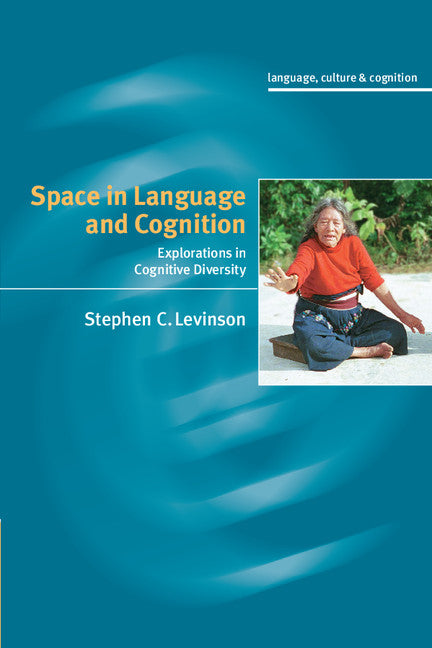Freshly Printed - allow 6 days lead
Couldn't load pickup availability
Space in Language and Cognition
Explorations in Cognitive Diversity
In this 2003 book, Stephen C. Levinson uses differences between languages to explore the relation between language and thought.
Stephen C. Levinson (Author)
9780521011969, Cambridge University Press
Paperback, published 20 March 2003
414 pages, 47 b/w illus. 25 tables
22.6 x 15.9 x 2.5 cm, 0.68 kg
"Levinson's book will certainly stand as a textbook in the study of the relationship between language and cognition, and is rich and challenging reading...Those with an interest in the issue of linguistic variation will find an unusually well-documented and well-argued presentation of the actual variation in the domain of spatial reference."
-Ingjerd Hoem, Institute for Pacific Archaeology and Cultural History, The Kon-Tiki Museum, Anthropological Linguistics
Languages differ in how they describe space, and such differences between languages can be used to explore the relation between language and thought. This 2003 book shows that even in a core cognitive domain like spatial thinking, language influences how people think, memorize and reason about spatial relations and directions. After outlining a typology of spatial coordinate systems in language and cognition, it is shown that not all languages use all types, and that non-linguistic cognition mirrors the systems available in the local language. The book reports on collaborative, interdisciplinary research, involving anthropologists, linguists and psychologists, conducted in many languages and cultures around the world, which establishes this robust correlation. The overall results suggest that thinking in the cognitive sciences underestimates the transformative power of language on thinking. The book will be of interest to linguists, psychologists, anthropologists and philosophers, and especially to students of spatial cognition.
Preface
1. The intellectual background: two millenia of Western ideas about spatial thinking
2. Frames of reference
3. Linguistic diversity
4. Absolute minds: glimpses into two cultures
5. Diversity in mind: methods and results from a cross-linguistic sample
6. Beyond language: frames of reference in wayfinding and pointing
7. Language and thought.
Subject Areas: Cognition & cognitive psychology [JMR], Linguistics [CF]


